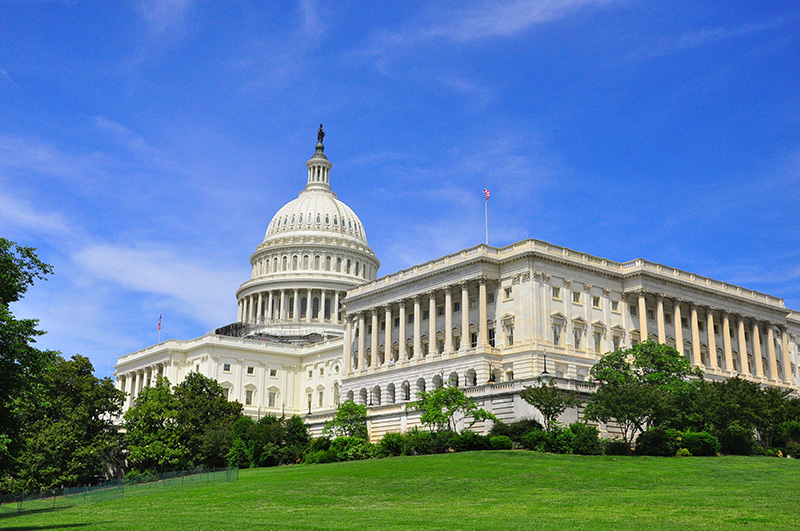
Twenty states officially filed variants of Right to Repair legislation in 2019. No bills have received a vote yet – which is normal and expected, given how hard it is to get all but the most trivial of bills passed.

Twenty states officially filed variants of Right to Repair legislation in 2019. No bills have received a vote yet – which is normal and expected, given how hard it is to get all but the most trivial of bills passed.

The California Capitol in Sacramento. | trekandshoot/Shutterstock
California lawmakers passed a bill requiring the use of recycled plastic in beverage containers. Separately, they OK’d legislation aimed at easing the use of cullet in bottles.

A pair of much-watched California bills looked to require a 75% reduction of waste from single-use packaging.| Eziutka /Shutterstock
Sweeping legislation in California that would have set aggressive recycling mandates on a range of items failed to advance last week.

Assembly Bill 827 requires many commercial establishments to offer recycling service to their customers. | Brandon Bourdages/Shutterstock
Businesses that are required to receive recycling and composting service in California will need to offer those collection services to customers, under a bill approved by the state legislature.

Juri Freeman of Resource Recycling Systems (left) moderated a plastics-focused panel consisting of (from left to right) Michael Sangiacomo of Recology, Zeina El-Azzi of Brightmark Energy, Kate Bailey of Eco-Cycle and Tim Ponrathnam of Berry Global. | Resource Recycling Conference/Brian Adams Photography
Should some types of single-use plastic be banned? Or is infrastructure improvement a better answer to current plastic waste concerns? A varied group of industry leaders tackled those questions last week.

Improperly disposed lithium-ion batteries can be a fire risk at MRFs. | Janaka Dharmasena/Shutterstock
Legislation making lithium-ion battery producers responsible for collecting and recycling the products they sell is advancing in California.

Legislation introduced last week establishes a framework to enable recycling-related investments. | LWPhotography/Shutterstock
Recycling issues have hit the national stage with unprecedented fervor in recent weeks. Citing recycling market challenges and growing plastic pollution, lawmakers are advancing legislation and pressuring government agencies to take action.

A bill from Minnesota Rep. Ilhan Omar provides federal funding to help local municipalities invest in materials recovery initiatives. | Supachai Pakdeesrisakda/Shutterstock
A waste reduction and recycling support bill has been introduced in Congress, with lawmakers describing the legislation as a significant component of the Green New Deal.
 Pacific Northwest recycling stakeholders met up last week to talk recycling markets, policy developments, outreach strategies and more.
Pacific Northwest recycling stakeholders met up last week to talk recycling markets, policy developments, outreach strategies and more.
 Governments, MRF operators, reclaimers and end users are calling for government regulation that requires recycled content in plastic bags.
Governments, MRF operators, reclaimers and end users are calling for government regulation that requires recycled content in plastic bags.

